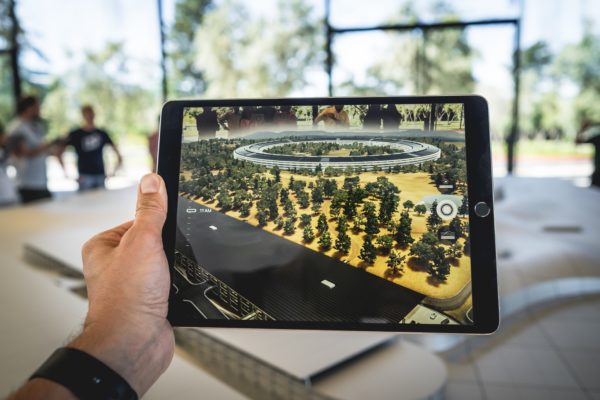Is Geelong on the cusp of a high-tech battery boom? Researchers at Deakin’s new BatTRI-Hub have big ambitions.
While they are ubiquitous in the modern world, Australian batteries are almost always imported. However, the combination of world-leading expertise and a new high-tech laboratory at Deakin’s Waurn Ponds campus is kick-starting a new industry in Geelong that could well see batteries manufactured in Australia.
Based within Deakin’s Institute for Frontier Materials (IFM), the Battery Technology Research and Innovation Hub (BatTRI-Hub) is a joint venture with CSIRO. It aims to develop the “beyond lithium-ion” battery technologies – and underpin a new Australian industry.
The Director of BatTRI-Hub, Professor Maria Forsyth, said that a key goal of the hub will be to help leverage opportunities for industries across the full energy value chain.
“BatTRI-Hub will allow us to scale up our lab-based research and work with new industry partners, as well as cementing existing relationships,” Professor Forsyth said.
Deakin and CSIRO researchers have established relationships with a range of domestic and international companies such as LG Chem – the largest manufacturer of batteries in the world – Toyota, HydroQuebec, Cytec (Solvay Group) and Ausnet. New relationships have seen the company SEA Automotive set up on the Waurn Ponds campus this year and now producing modular electric drive power pack systems for medium duty trucks.
The electric bus manufacturer Avass is building a large manufacturing plant at Avalon Airport that will also call on Deakin skills.
In terms of the capability of the new facilities, Dr Robert Kerr, a Research Fellow in materials science who helped set up the lab, said it is unique in Australia. Features like the 10-port argon-filled glovebox now allow Australian researchers to assemble pouch cells containing air and moisture-sensitive substances like lithium metal, sodium metal and ionic liquids far more easily.
[testimonial_text]The hub is a significant first step in the expected development of a full pilot scale facility at Waurn Ponds that we believe will be established in the next few years, with Government and industry support[/testimonial_text]
[testimonial_picture name=”Robert Kerr” details=”Research Fellow”]
 [/testimonial_picture]
[/testimonial_picture]“Our research teams are pursuing two main streams of battery research: lithium metal-based batteries and sodium-based batteries. Both have strong potential for creating a new generation of batteries that last over twice as long as current batteries.
“Battery powered vehicles are already being produced around the world. However, uptake is being hindered by the low practical driving range of around 250kms. The belief is that within the next decade this will be exceeding 500km using the next-generation of battery technologies.”
BatTRI-Hub is initially supporting around 15 researchers, several of whom have been based at the IFM’s Burwood lab, where the research focus is on the potential of lithium metal and ionic liquids to produce safer and longer lasting batteries.
As the lightest and one of the more reactive metals, pure lithium metal has a number of attractive features for application in batteries.
“Lithium metal electrodes are the holy grail of lithium-based batteries,” Dr Kerr said.
“In some ways, batteries are quite simple. Their structure consists of two electrodes separated by an electrolyte. In standard lithium-ion batteries, one of these electrodes is made from graphite. One gram of lithium metal can store ten times the amount of energy as one gram of graphite. Using a new class of ionic liquid electrolytes, our aim is to produce safe, long-lasting, and durable batteries by replacing the graphite with lithium metal.”
The research team is well on its way. They have demonstrated performances comparable to lithium ion batteries, in terms of power output and length of life per charge, using a small coin cell containing an ionic liquid electrolyte and lithium metal.
The Deakin team is also making strong progress with sodium metal- based batteries, which offer a more accessible battery option for the longer term as sodium is more abundant and much cheaper than lithium.
There are a number of new challenges that the different chemistry of sodium presents that the team is striving to overcome, not least the difficulty in handling such a reactive material.
Robert Kerr has been fascinated with renewable energy technologies since he began his PhD, researching new catalyst materials for hydrogen fuel cells. He broadened his expertise during a two-year period as a researcher with the Danish alternative energy company, Danish Power Systems, before joining Deakin in mid-2015.
“There is no reason why Australia can’t take a leading role in this technology,” he said.
“It is such a rapidly changing and growing area, with so many challenges, especially materials related. But the potential impact is huge, particularly in the automotive and renewable energy sectors.”



